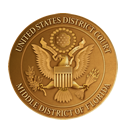- OBJECTION TO THE FORM OF THE QUESTION. Rule 32(d)(3)(B), , provides that an objection to the form of the question is waived unless asserted during the deposition. Many attorneys object by simply stating "I object to the form of the question." This normally suffices because it is usually apparent that the objection is, for example, "leading" or based upon an insufficient or inaccurate foundation. The interrogating attorney has a right to ask the objecting party to state a sufficiently specific objection so that any problem with the question can be understood and, if possible, cured. If the interrogating attorney chooses not to ask for clarification, the objecting attorney should stand on the objection without further elaboration; the objection is preserved."
- INSTRUCTION THAT A WITNESS NOT ANSWER. Occasionally during a deposition, an attorney may instruct a deponent not to answer a question. Rule 30(c)(2), Federal Rules of Civil Procedure, expressly provides that an attorney may instruct a deponent not to answer only when necessary to preserve a privilege, to enforce a limitation established by the Court, or to present a motion to show that the examination is being conducted in bad faith or in such a manner as unreasonably to annoy, embarrass, or oppress the deponent or party. The use of the instruction not to answer, absent the limited circumstances set forth in Rule 30(c)(2), Federal Rules of Civil Procedure, is disfavored by the Court. A party or an attorney who improperly instructs a deponent not to answer is subject to the expense and sanction provisions of Rule 37(a)(5).
- ATTORNEY-DEPONENT CONFERENCE DURING DEPOSITION. Except during routine recesses and for purposes of determining the existence of a privilege, an attorney and a deponent should not normally confer during a deposition. Likewise, attorneys should not attempt to prompt a deponent by suggestive or unnecessarily narrative objections.
- ATTORNEY-DEPONENT COMMUNICATION DURING A RECESS. During a recess, an attorney for a deponent may communicate with the deponent; this communication should be deemed subject to the rules governing the attorney-client privilege. If, as a result of a communication between the deponent and his or her attorney, a decision is made to clarify or correct testimony previously given by the deponent, the deponent or the attorney for the deponent should, promptly upon the resumption of the deposition, bring the clarification or correction to the attention of the examining attorney. The examining attorney should not attempt to inquire into communications between the deponent and the attorney for the deponent that are protected by the attorney client privilege. The examining attorney may inquire as to the circumstances that led to any clarification or correction, including inquiry into any matter that was used to refresh the deponent's recollection.
- TELEPHONE HEARING TO RESOLVE DISPUTES DURING DEPOSITION. In unusual circumstances with material and adverse consequences, the parties involved in a deposition may telephone the chambers of the assigned Magistrate Judge for resolution of an intractable dispute that has arisen during the deposition. The Magistrate Judge, if available, will entertain such a request only if all parties are present. This procedure should be employed rarely (and only after counsel have made every effort to resolve the dispute).
